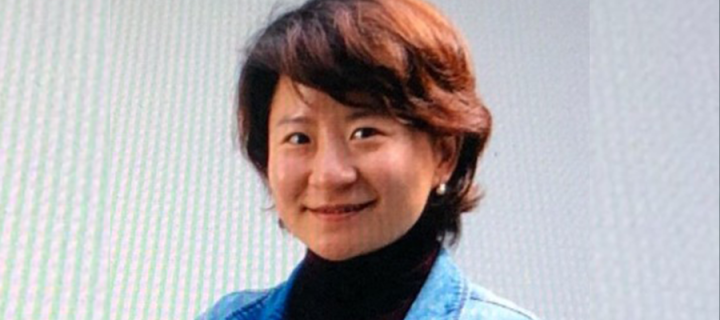Chunli Zhang
Chunli Zhang's first role after graduation was in investment banking, something that put her on a worthwhile learning curve. But in 2018 she decided to follow her passion and established her own start-up company, WeeKett, that produces smart home appliances. She tells us about being focussed on growing the successful business further, developing her knowledge of sustainable business, and her work to help other companies in Edinburgh be part of the circular economy.
| Name |
Chunli Zhang |
| Degree |
Economics with Finance |
| Year of graduation | 2015 |

At the moment
I'm back in Edinburgh, after living and working in Birmingham for a few years.
Your time at the University
My favourite part about studying at Edinburgh University was the abundance and diversity of student societies and clubs - I was actively involved at the trading and investment society (EUTIC) throughout my 4 years of undergrad and built some incredible friendships and made some lifelong friends. I also played in the women's football team, tried archery and a few other fun activities. Through the involvement at this student organisations I've gained some valuable experiences and developed lots of transferable skills that have proved to be very helpful for my career development so far.
Your experiences since leaving the University
I started my own company called WeeKett in the smart home field about four years ago in early 2018. It is one of the earliest smart home appliance startup in the UK and it was founded in Edinburgh with the support of the University, Business Gateway and Scottish Enterprise. Just last year in the middle of the pandemic we launched our very first product which is a smart Wi-Fi kettle which people can control remotely from their smartphone or via smart speakers like Amazon Echo dot and Google Home. The you can market has responded to it very well and it's one of the best sellers on Amazon UK.
However, this wasn’t what I was doing initially after I graduated. After I have graduated from Edinburgh University I started my career as an investment analyst at Deutsche Bank in their asset management business. I was very fortunate to have this opportunity to work in a large corporation in a thriving unit where I could learn from lots of talented and driven colleagues. Back then I had a very busy work schedule and my working hours well from 7am until about 7pm. But thanks to this busy work schedule it actually inspired me to come up with the smart home product ideas that I have been working on to help make life easier. And the three years spent at Deutsche Bank was also an extremely valuable experience that helped me manage the business better.
I am also passionate about circular economy, currently seeking solutions on how to make home appliances more circular. I've also recently completed a part time postgraduate degree at Cambridge too further my knowledge on sustainable business.
I'm an Ambassador for Circular Edinbugh, an initiative of Edinburgh Chamber of Commerice. Its mission is to help the City become more circular, help companies embed circular economy thinking and support circular economy projects come to fruition. To help support this mission and meet the objectives of the project, the team and I work with a number of stakeholders and ambassadors who support the project.
What is a circular economy?
The circular economy is a model of production and consumption, which involves sharing, leasing, reusing, repairing, refurbishing and recycling existing materials and products as long as possible. In this way, the life cycle of products is extended.
In practice, it implies reducing waste to a minimum. When a product reaches the end of its life, its materials are kept within the economy wherever possible. These can be productively used again and again, thereby creating further value.
This is a departure from the traditional, linear economic model, which is based on a take-make-consume-throw away pattern. This model relies on large quantities of cheap, easily accessible materials and energy.
And Covid-19 has definitely helped prompt me to reassess my life and career. Actually during my under graduate my father passed away and one of the most important lessons from losing someone so close was that we only have one life and we never know when it's going to end and for some people it's going to end a lot sooner than we expect. The pandemic just sent another strong reminder to me to make sure I am dedicating my time to things that will minimise my regret in life. Leaving a stable job in a large corporation was a tough call and running a start time is also challenging especially in a pandemic environment, but looking back I am really grateful to have had the opportunity to work on what I have been doing. I hope as the business grows in the future and more talented people joining, I would be able to utilise the resources to provide more solutions to critical events to help more people.
Alumni wisdom
The UK economy is very open minded about people degree backgrounds unless you want to be a doctor or work in one of those highly specialised professions. While having an economics degree is very valuable, I wish I studied a degree that I was more passionate about for example psychology or a language degree. But there is also no need to dwell on your degree if you are also like me ending up with a degree that was not a passion. Whichever degree you are in there is always something to learn and remember over the long run the most valuable part is not the degree certificate but the experience and relationships you've accumulated throughout the four years and the memories that count. also learning is a lifelong process it doesn't end when the four year undergraduate degree ends it's only the beginning.
Related links
Circular Edinburgh (external)

